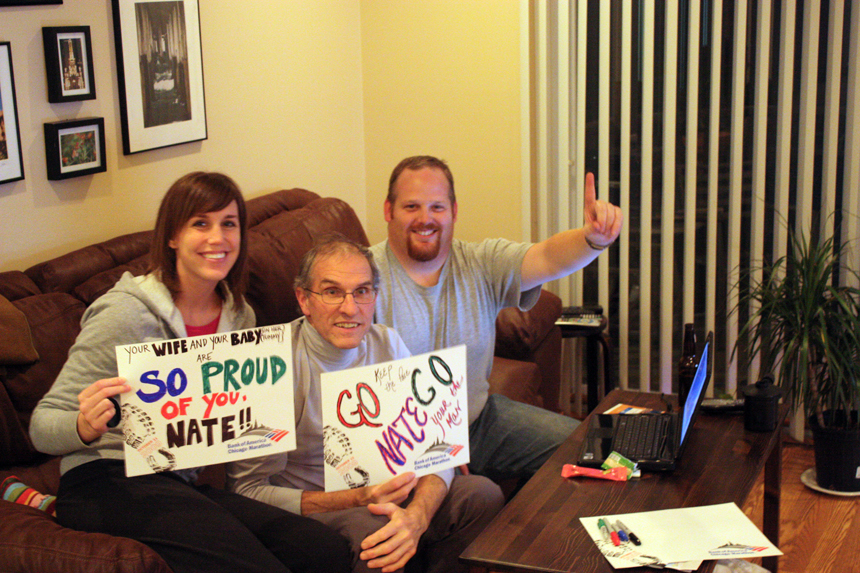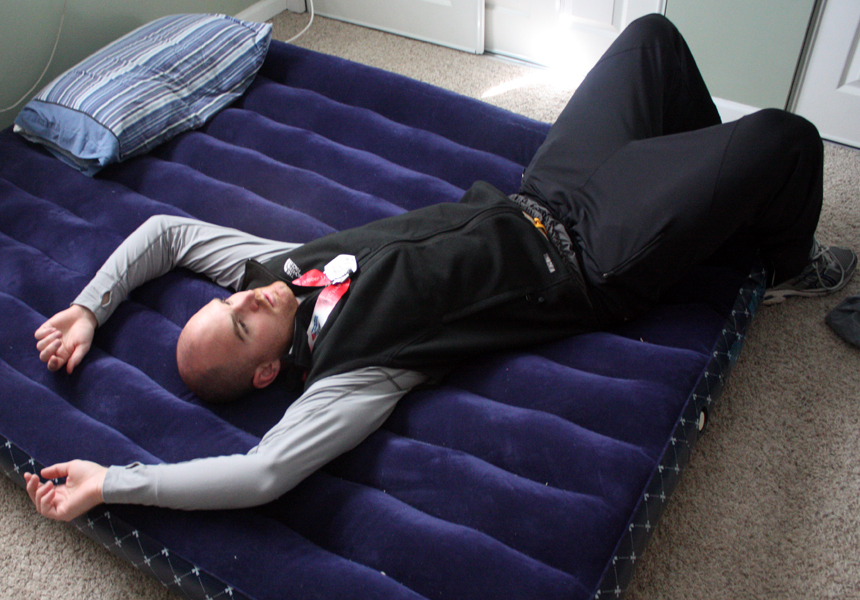With my giant list of 'must read' pregnancy, birthing, and parenting books I figure I should attempt to write reviews of some of them. Then maybe I won't forget everything I've read when I need it, right?
Before I start, let me say that I am fully aware that this subject is one of the many 'hot topic' sensitive issues out there in the world of pregnancy and delivery. I have my opinions but believe everyone is entitled to theirs as well. And I mostly just want to reiterate what this book states, knowing it is not the end-all book out there. No judgment here, no matter what you believe about labor and delivery, okay? We as women need to do a better job of supporting each other in these circumstances instead of judging or putting each other down. Let's all hold hands and sing, shall we? :)
A lot of people have heard of Ricki Lake's book called 'Your Best Birth' and I still have that one on my list, too. But Hannah recommended 'The Best Birth' by Sarah McMoyler and I wanted to read this one first. It is kind of like the 'light' version of Ricki's book and I highly, highly recommend it to you if you are interested.
The author is a Labor and Delivery nurse with twenty-plus years of experience. She is very realistic, encouraging, and straight-forward. The McMoyler philosophy goes something like this: "healthy mom, healthy baby, however you get there". She is NOT anti-hospital, since she (like me!) is a healthcare professional herself. However, she is also encourages moms to try for a low to no intervention birth if possible. Basically she is not an extremist who pushes an 'all or none' theory at us. I really enjoy a realistic, middle of the road book every now and then:)
A few thought provoking points to consider:
1. The McMoyler method makes Dad a major player during labor and delivery, believing that as you give birth to his child he should NOT simply be a spectator. Many years ago, Dads weren't even in the delivery room with the mom (but then again, many years ago women were totally unconscious during delivery.....talk about creepy!).
She even goes so far to say that although some doulas are wonderful and helpful, most of them are unlicensed with no medical training. Although they may have your best intentions in mind, sometimes they will go up against the medical staff to fight for your 'birth plan' even when it puts the baby at risk. As a medical professional myself, I plan on taking advice from my OB--the one who went through years of medical schooling and formal testing and who is required by the state to stay up-to-date on her licensing. McMoyler suggests that you already have the best doula you can get in your husband. He knows you better and loves you more than anyone else, knowing your fears and desires, with a big stake in the outcome. She puts dad front and center as your primary support person and wrote an entire chapter just for dad. Nate is reading it right now and likes it for the specific techniques she lists to help me through the pain of labor.
2. McMoyler also proposes that the medical team at the hospital are NOT the bad guys. They aren't out to get you, ready to slice you open for a c-section and rush you through the biggest day in your life. Sure, there are some bad apples out there in the medical world just like any other profession. But the vast majority of doctors and nurses involved in labor and delivery love what they do and are committed to providing the best and safest care possible. She says that if you want a low-to-no-intervention birth they will support you any way they can. But if something happens that jeopardizes your or the baby's healthy, they will do whatever is necessary to keep you both safe.
And as a side note, as someone who works in a hospital myself, it NEVER hurts to do a little butt kissing to your nurses (I do it all the time and it works!) Be respectful of them, be kind, and a few compliments here and there go a long way. They will be a huge part of your day and you want them to be on your good side. Rolling through the door and saying, 'Don't touch me, I don't want you people to do anything because I'm going all natural' is a good way to put the nurses on the defensive. Not good. Another well-kept secret in the hospital world? We love food. Bring us some cookies or treats and we'll go the extra mile for you. We're pretty easy to please:)
I'm not going to go into all of the details here, but in chapter five the author goes through common myths about hospitals and interventions provided there. The two big ones for me (that I had heard before, and was a little worried about) were the idea that epidurals slow down labor and lead to many complications with the baby, and that hospitals intervene and do c-sections even when there is no medical need just because they make more money/it's more convenient.
For the Big E (epidural) dilemma, I'm of the group that would definitely like to try and avoid one but I'm not going to completely rule it out, either. You get no gold medal for going drug free and it's not a competition, so if I've been pushing for 15 hours and I'm only 3 cm dilated you better believe I'll consider an epidural. Sometimes, as the author states, an epidural lets your body relax and possibly even get some sleep which sometimes allows you to further dilate. A good epidural will let you feel pressure, not pain, so that you can still time your pushing without being completely numb. And in some hospitals you can even get a 'walking epidural' so you aren't totally bed bound afterward, since lying on your back is really not the best position for birthing. Epidurals sometimes spread out contractions but not always. Yes, if you have one you will probably need IV fluids, a catheter, and possibly Picotin. But I just think there is no way to plan whether or not you will need an epidural or not.
For the big C-section dilemma, obviously I want to avoid one at all costs. I do not believe that c-sections are more convenient for docs since they take a ton more time and delay the doctor getting out the door to another patient. I do think that some doctors might be more inclined to push for a c-section if there is ANY chance of fetal distress because of the fear of liability. And honestly, if my baby's heart rate is dropping with each contraction leading the medical team to think the baby is not tolerating a vaginal birth well I will not mess around with continuing to push for a vaginal delivery. The author also points out other valid reasons for a c-section (breech or transverse positioning, placenta or umbilical cord issues, and maternal indications) although she agrees that they should be used as a last resort. In the end, I just want my baby to be healthy and if something goes wrong I will trust my doctor to make the right decision.
3. Which brings me to an AWESOME point made by this book: no regrets. I think especially us women tend to get down on ourselves when plans fail, when things don't go the way they are 'supposed' to go. Although it's VERY tempting for me to write out a detailed birth plan of what my ideal scenario would be, I know that for me (and many others) putting ideas down on paper is like carving them in stone. And even though I've never been through labor and delivery before, I'm not naive enough to think that things go according to plan when you are pushing out a human being from your nether regions. If I hand over a piece of paper to my doc that says 'absolutely NO epidural, and NO c-section' I know I'm setting myself up for failure in the case that something does not go according to plan. As the author talks extensively about in the book, she has seen many women go in with the 'natural or nothing' mindset who end up having complications, needing an epidural and or a c-section. What is really sad is that these women end up regretting their birth experience, feeling negative and depressed and like a failure because they had to have drugs/interventions. I mean really, having a healthy newborn baby is a HUGE reason for celebration. Why would you waste one second feeling bad about yourself or your birth experience when you have an adorable new baby to care for? Throw in a little sleep deprivation, your whole world being turned upside down, and feelings of inadequacies and you are a shoe in for hard core baby blues, right?
So no regrets. Yes, you should spend time discussing your ideal situation and hoping for a low to no intervention birth is a fabulous goal (and mine!). But flexibility is key here and remember there are no gold medals for going all natural. The biggest reward is that little bundle of joy no matter how they got there. And at the end of the day, I want to be able to look over at Nate and say 'We did it!' because I fully expect him to be a major player pushing me through contractions and supporting me during one of the most intense moments of my life. He proved himself to be a great coach during my marathon and I know that he will be a lifesaver during this other type of endurance sport:)
Basically, I think that every single woman is different and each birthing experience is unique. I think it's great if you want a home birth, a doula, no interventions, etc. Maybe you're of the camp that prefers to be hooked up to an epidural immediately to avoid as much pain as possible, which is totally fine by me, too. But I just hope that whatever your 'plan' you know that sometimes the unexpected happens. And as long as a healthy baby enters into the world after delivery, the event was a success in my eyes.
I'm so grateful that I will be giving birth in a medically advanced time with so many options out there. And of course, I intend to read a zillion more books about this subject not because it gives me more control, or prepares me for every little thing about delivery, but because it's so freaking awesome to think that in about 4 months I'll have my own birth experience. GAH!































